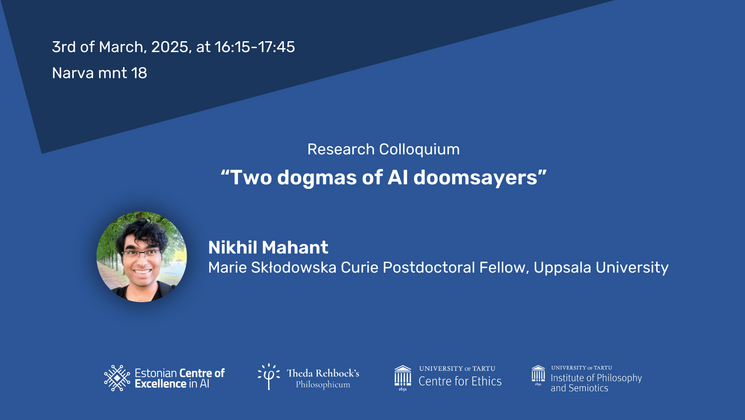-
Faculty of Arts and HumanitiesJakobi 2, r 116-121 51005 Tartu linn, Tartu linn, Tartumaa ESTJakobi 2 51005 Tartu linn, Tartu linn, Tartumaa ESTJakobi 2, IV korrus 51005 Tartu linn, Tartu linn, Tartumaa ESTJakobi 2, III korrus, ruumid 302-337 51005 Tartu linn, Tartu linn, Tartumaa ESTÜlikooli 16 51003 Tartu linn, Tartu linn, Tartumaa ESTLossi 3 51003 Tartu linn, Tartu linn, Tartumaa ESTÜlikooli 18 50090 Tartu linn, Tartu linn, Tartumaa ESTPosti 1 71004 Viljandi linn, Viljandimaa ESTJakobi 2 51005 Tartu linn, Tartu linn, Tartumaa ESTJakobi 2 51005 Tartu linn, Tartu linn, Tartumaa ESTFaculty of Social SciencesLossi 36 51003 Tartu linn, Tartu linn, Tartumaa ESTJakobi 5 51005 Tartu linn, Tartu linn, Tartumaa ESTLossi 36, ruum 301 51003 Tartu linn, Tartu linn, Tartumaa ESTNarva mnt 18 51009 Tartu linn, Tartu linn, Tartumaa ESTNäituse 2 50409 Tartu linn, Tartu linn, Tartumaa ESTNäituse 20 - 324 50409 Tartu linn, Tartu linn, Tartumaa ESTLossi 36 51003 Tartu linn, Tartu linn, Tartumaa ESTRaekoja plats 2 20307 Narva linn, Ida-Virumaa ESTRingi 35 80012 Pärnu linn, Pärnu linn, Pärnumaa ESTLossi 36 51003 Tartu linn, Tartu linn, Tartumaa ESTLossi 36 51003 Tartu linn, Tartu linn, Tartumaa ESTFaculty of MedicineRavila 19 50411 Tartu linn, Tartu linn, Tartumaa ESTBiomeedikum, Ravila 19 50411 Tartu linn, Tartu linn, Tartumaa ESTNooruse 1 50411 Tartu linn, Tartu linn, Tartumaa ESTL. Puusepa 1a 50406 Tartu linn, Tartu linn, Tartumaa ESTL. Puusepa 8 50406 Tartu linn, Tartu linn, Tartumaa ESTRavila 19 50411 Tartu linn, Tartu linn, Tartumaa ESTUjula 4 51008 Tartu linn, Tartu linn, Tartumaa ESTRavila 50411 Tartu linn, Tartu linn, Tartumaa ESTRavila 19 50411 Tartu linn, Tartu linn, Tartumaa ESTFaculty of Science and TechnologyVanemuise 46 - 208 51003 Tartu linn, Tartu linn, Tartumaa ESTNarva mnt 18 51009 Tartu linn, Tartu linn, Tartumaa ESTRiia 23b/2 51010 Tartu linn, Tartu linn, Tartumaa ESTRavila 14a 50411 Tartu linn, Tartu linn, Tartumaa ESTNarva mnt 18 51009 Tartu linn, Tartu linn, Tartumaa ESTRiia 23, 23b - 134 51010 Tartu linn, Tartu linn, Tartumaa ESTObservatooriumi 1 61602 Tõravere alevik, Nõo vald, Tartumaa ESTNooruse 1 50411 Tartu linn, Tartu linn, Tartumaa ESTJ. Liivi tn 2 50409 Tartu linn, Tartu linn, Tartumaa ESTVanemuise 46 51003 Tartu linn, Tartu linn, Tartumaa ESTVanemuise 46 51003 Tartu linn, Tartu linn, Tartumaa ESTArea of Academic SecretaryLossi 3 51003 Tartu linn, Tartu linn, Tartumaa ESTUppsala 6, Lossi 36 51003 Tartu linn, Tartu linn, Tartumaa ESTArea of Head of FinanceÜlikooli 17 51005 Tartu linn, Tartu linn, Tartumaa ESTArea of Director of AdministrationÜlikooli 18A (III korrus) 51005 Tartu linn, Tartu linn, Tartumaa ESTÜlikooli 18, ruumid 102, 104, 209, 210 50090 Tartu linn, Tartu linn, Tartumaa ESTArea of Vice Rector for DevelopmentNarva mnt 18 51009 Tartu linn, Tartu linn, Tartumaa ESTVanemuise 46 51003 Tartu linn, Tartu linn, Tartumaa ESTLossi 25 51003 Tartu linn, Tartu linn, Tartumaa ESTArea of RectorArea of Vice Rector for Academic AffairsUppsala 10 51003 Tartu linn, Tartu linn, Tartumaa ESTÜlikooli 18b 51005 Tartu linn, Tartu linn, Tartumaa ESTArea of Vice Rector for ResearchW. Struve 1 50091 Tartu linn, Tartu linn, Tartumaa EST
Centre for Ethics conducted an ethics training for cybercrime researchers

On 21 January 2021, the Centre for Ethics at the University of Tartu (CEUT), in cooperation with TIMELEX (Brussels) lawyers, conducted training on research ethics and data protection for researchers of cybercrimes committed by young people.
The workshop was part of the Horizon 2020 research project “RAYUELA”, which focuses on research of cybercrimes committed by children and young people and how to prevent them. The workshop, which involved partners in this project, looked at at research ethics and data protection issues related to vulnerable groups. The presentations were given by the Head of the CEUT Prof. Margit Sutrop and TIMELEX lawyer Pieter Gryffroy.
“Although research into the causes of cybercrimes committed by young people is an important topic, it is also an ethically very complex field,” explained Mari-Liisa Parder, a junior researcher fellow at the CEUT. “The workshop provided an overview of ethical principles and legislation that must be kept in mind. Special attention was paid to following ethical principles and data protection questions,” Parder added.
According to Prof. Margit Sutrop, Head of the CEUT, the role of the centre was to advise partners on what to consider ethics wise when working with vulnerable groups (young people, criminals, victims): “In the workshop we solved ethical dilemmas on how to involve children in research and what is the ethical way to use social science methods.” For example, in one situation, you would be asked what you would do as an observer of students, from whom the teacher would later ask for information about her students. “When discussing different risks that may arise, they are easier to notice later in a practical research situation,” explained Prof Sutrop.
The workshop on 21 January was an introduction to the research carried out under the RAYUELA project. The aim of the workshop was to harmonize practices and gather information for the development of relevant ethical guidelines for future similar projects.
The research project RAYUELA, led by Comillas Pontifical University, aims to bring together law enforcement agencies, sociologists, psychologists, anthropologists, legal experts, computer scientists and engineers, to improve cybercrime prevention and understand the factors that influence the online behaviour of children and adolescents under 18.
The full title of this project is “Empowering and educating young people for the internet by playing”. This project has received funding from the European Union's Horizon 2020 research and innovation programme under the grant agreement No 882828. In addition to the University of Tartu, the Estonian Police and Border Guard Board is also involved with RAYUELA. The project has 17 partner organisations from Spain, Belgium, Slovakia, Portugal, the United Kingdom, Latvia, Greece and Germany.
For more information, please visit https://www.rayuela-h2020.eu/
See as well: The University of Tartu helps to research cybercrime motives
Read more similar news





